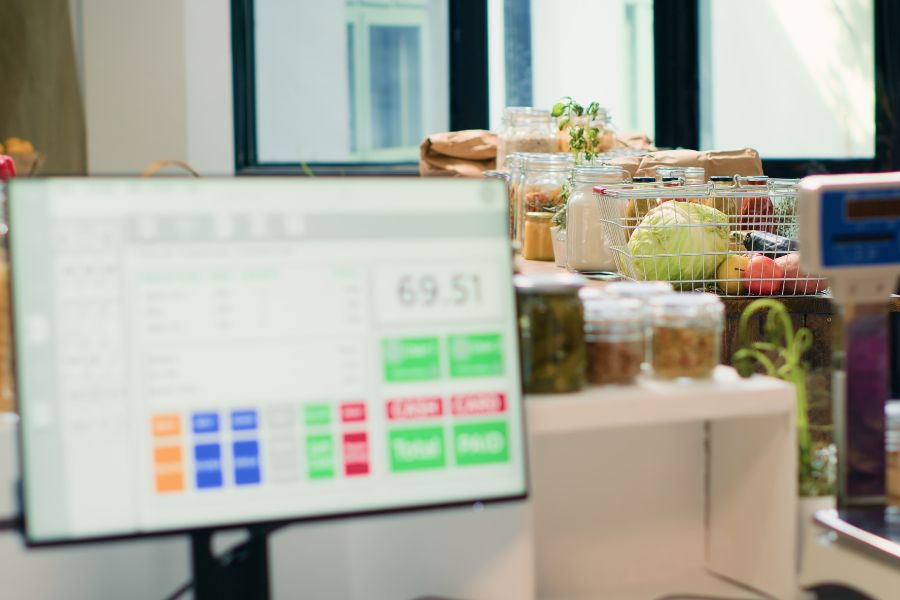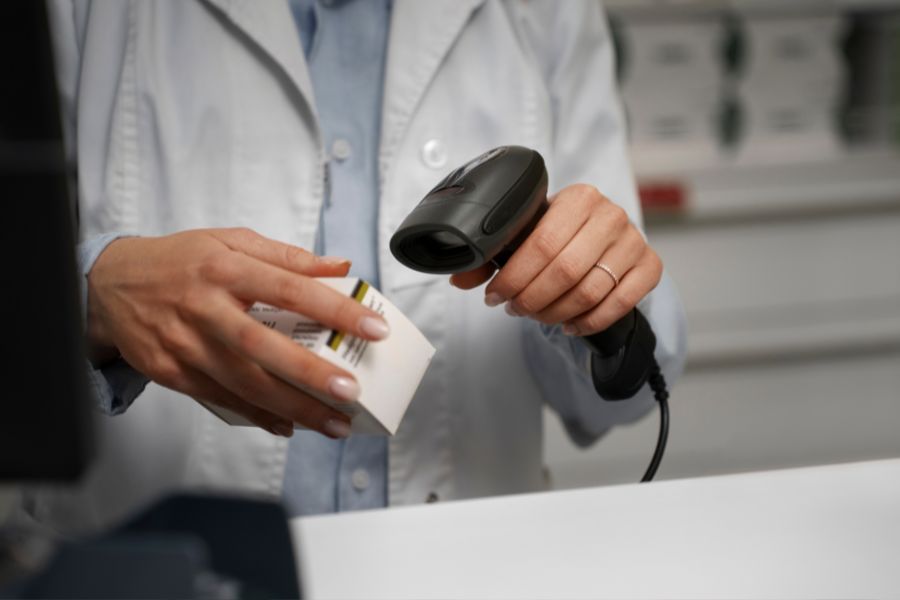Organizing successful events demands meticulous planning, and a crucial component is choosing the right Point of Sale (POS) system. As the dynamics of events evolve, the significance of a tailored POS solution becomes paramount. In this comprehensive guide, we delve into the intricacies of selecting the best POS for events in the US. From hardware compatibility to seamless integration, our exploration covers every facet to empower event organizers to make informed choices.
Significance of POS Systems for Events in the US
Before diving into the significance of POS systems for events in the US, it’s essential to grasp what these systems entail. Point of Sale (POS) systems for events refer to specialized technology designed to streamline transactions, manage inventory, and enhance overall sales operations during events.
In the context of the dynamic event industry in the US, POS systems play a crucial role in elevating operational efficiency. These systems are tailored to meet the unique demands of various events, offering real-time transaction processing and inventory tracking. The significance of POS systems for events in the US can be comprehended through several key perspectives:
- Efficiency Enhancement: POS systems significantly contribute to the efficiency of event management. With quick and accurate transaction processing, these systems minimize wait times, allowing attendees to experience seamless checkouts. The automation features of POS systems ensure a smooth flow of operations, reducing the likelihood of delays or errors during high-paced events.
- Adaptability to Diverse Settings: Events in the US vary widely in scale, format, and theme. POS systems are designed to be adaptable and function seamlessly across different settings, whether a music festival, trade show, or sporting event. This adaptability ensures that event organizers can employ a consistent and effective sales system regardless of the event’s nature.
- Enhanced Attendee Experience: POS systems contribute to an enhanced experience for event attendees. Quick checkouts and integration with loyalty programs enable personalized promotions and discounts, fostering a sense of appreciation among customers. The ability to offer a smooth and efficient shopping experience POS itively impacts attendee satisfaction and encourages repeat attendance.
- Data-Driven Decision-Making: For event organizers, data is a powerful tool for making informed decisions. POS systems provide detailed sales analytics, inventory tracking, and forecasting capabilities. These insights empower organizers to understand attendee behavior, identify trends, and strategize for future events, contributing to long-term success. The significance of POS systems for events in the US lies in their ability to transform the event management landscape. POS systems are instrumental in creating successful and memorable events, from ensuring operational efficiency to providing valuable data for decision-making.
Criteria for Evaluating POS Systems
Selecting the right point of sale (POS) system for events involves a thorough evaluation based on various crucial criteria. Here are key aspects to consider when assessing the suitability of a POS system for your event needs:
- Compatibility with diverse hardware devices: A robust POS system should seamlessly integrate with a variety of hardware devices commonly used in event settings, ensuring flexibility and adaptability.
- Sales mobility and flexibility: Look for POS systems that offer sales mobility, allowing transactions to occur anywhere within the event venue. Flexibility in adapting to different sales scenarios is essential.
- Absence of long-term contracts: Opt for POS systems that provide flexibility by avoiding long-term contracts. The absence of stringent agreements allows for adaptability to changing event requirements and durations.
- Pricing plans and rental availability: Evaluate the pricing plans offered by POS providers, considering the scalability of costs for events of various sizes. Additionally, explore the availability of rental options for cost-effective solutions.
- Checkout and mobility features: Efficient checkout processes and mobile capabilities are vital features for the fast-paced nature of events. A user-friendly interface with mobile functionality enhances the overall event experience.
- Offline capability for event settings: Ensure the POS system is equipped to operate seamlessly offline. This is crucial for events where internet connectivity may be inconsistent or challenging.
- Overall user-friendliness: A user-friendly POS system minimizes the learning curve for event staff. Intuitive interfaces and straightforward functionalities contribute to smoother operations during the event.
Popular POS Systems for Events in the United States
Stationary POS Systems
In the realm of event management, stationary POS systems stand out as a reliable choice, presenting a set of advantages and disadvantages tailored to specific needs.
Advantages:
- Robust Hardware Options: Stationary POS systems boast an array of robust hardware, including large registers and comprehensive kits. This ensures they are well-equipped to handle diverse transactional requirements during events.
- Suitable for Fixed Sales Locations: Ideal for events with a fixed sales location and established infrastructure, stationary POS systems provide stability and efficiency in environments where sales are concentrated in specific areas.
Disadvantages:
- Lack of Mobility: A notable drawback of stationary POS systems lies in their lack of mobility. This limitation restricts sales to a specific area, making them less adaptable to events with a dynamic or expansive layout.
- Longer Setup Time: Compared to their mobile counterparts, stationary POS systems typically require a longer setup time. This could impact the efficiency of event operations, especially when quick deployment is crucial. Event organizers must weigh the advantages of robust hardware against the limitations of mobility and setup time to determine the optimal POS solution for their specific needs.
Hybrid POS Systems
Hybrid POS systems stand out as a versatile solution, combining the advantages of mobility and a range of hardware options. Tailored for events with diverse transaction needs, these systems present a blend of features suitable for both stationary and mobile settings.
- Advantages:
The Blend of Mobility and Comprehensive Hardware Options: Hybrid POS systems seamlessly integrate the flexibility of mobile transactions with the robustness of stationary hardware, offering a versatile solution. Suitable for Events with Both Stationary and Mobile Transaction Requirements:
Events often have varying transaction needs, from fixed sales points to roaming vendors. Hybrid systems cater to both scenarios, ensuring optimal adaptability.
- Disadvantages:
Complexity May Increase, Requiring More Training for Users: The incorporation of diverse features can lead to increased system complexity. Users may require more comprehensive training to harness the full capabilities of the hybrid POS system.
Costlier Than Singular-PurPOSe Systems: The versatility and comprehensive features of hybrid POS systems come at a cost. They are generally more expensive than singular-purPOSe systems due to the broader range of functionalities they offer.
Online POS Systems
- Advantages:
Flexibility to Process Transactions Remotely: Online POS systems offer the advantage of processing transactions from any location, providing event organizers with flexibility and mobility.
Integration with Online Sales Channels for Expanded Reach: These systems seamlessly integrate with various online sales channels, extending the reach of event merchandise or services to a broader audience.
- Disadvantages:
Relies on a Stable Internet Connection: One of the main drawbacks is the dependency on a stable internet connection. In cases of poor connectivity, transaction processing may become slow or temporarily halted.
Limited Presence in Physical Events Without Additional Hardware: Online POS systems are primarily designed for virtual transactions, limiting their efficiency in physical events without additional hardware support. This restriction might hinder their effectiveness in diverse event settings.
Cloud-Based POS Systems
In the realm of event management, Cloud-Based Point of Sale (POS) systems have emerged as powerful tools, offering distinct advantages and considerations. Understanding the pros and cons of these systems is essential for event organizers seeking optimal efficiency and convenience.
- Advantages:
Centralized Data Storage and Accessibility: Cloud-based POS systems centralize data storage, enabling accessibility from multiple devices. This ensures seamless coordination among event staff, providing real-time updates on sales, inventory, and customer interactions.
Real-Time Updates and Analytics: The real-time functionality of cloud-based systems empowers event organizers with immediate insights. Real-time updates and analytics contribute to efficient event management, allowing organizers to make informed decisions promptly.
- Disadvantages:
Dependency on Internet Connectivity: A significant drawback of cloud-based POS systems is their dependency on Internet connectivity. In the absence of a stable internet connection, the system’s functionality may be compromised, affecting transaction processing and data synchronization.
Security Concerns Related to Cloud-Based Data Storage: Security is a paramount concern when it comes to cloud-based data storage. Storing sensitive information on remote servers raises potential security risks, making it crucial for event organizers to implement robust security measures and ensure compliance with data protection regulations.
FAQs on Choosing the Best POS for Events in the US
Where to find POS systems and hardware for rent?
Reliable sources for renting POS systems and hardware include specialized POS providers, event equipment rental companies, and technology rental services. It’s advisable to explore reputable providers that offer customizable solutions to meet specific event requirements.
Many companies specialize in providing POS solutions for various events. These providers understand the unique needs of different occasions, offering tailored POS systems with specific functionalities. A quick online search or referrals from event industry networks can help identify reputable POS providers. Specialized POS Providers:
- Event Equipment Rental Companies: Established event equipment rental companies often include POS systems in their inventory. These companies cater to a wide range of event needs, providing a convenient one-stop solution for organizers. When selecting an event equipment rental company, ensure they have a track record of delivering reliable and up-to-date POS technology.
- Technology Rental Services: Dedicated technology rental services offer a broad spectrum of devices, including POS systems. These services are well-equipped to provide the latest hardware and software solutions. When considering technology rental, verify the range of POS options available and inquire about their flexibility for customization.
How do POS system rentals handle security and data protection?
Reputable POS system rental providers prioritize security by implementing a multi-faceted approach to safeguard sensitive information during events:
- Data Encryption: POS systems for events employ advanced encryption algorithms to secure data transmission between devices and the central server. This ensures that customer and transaction data remains confidential and protected from unauthorized access.
- Secure Payment Processing: A reliable POS rental service ensures secure payment processing through compliance with Payment Card Industry Data Security Standard (PCI DSS) requirements. This standard establishes a secure environment for processing cardholder information, reducing the risk of payment-related security breaches.
- Adherence to Industry Regulations: Committed POS rental providers adhere to industry regulations and standards governing data protection and privacy. Compliance with regulations such as GDPR (General Data Protection Regulation) ensures that customer data is handled ethically and legally, fostering trust between the event organizer and attendees.
Can a rented POS system be customized to specific event needs?
Absolutely. Renting a POS system provides the flexibility for event organizers to customize the system according to the unique requirements of their event POS. This customization extends to various aspects, ensuring a seamless alignment with the event’s nature:
- Configuring Menu Items: Event organizers can tailor the POS system to showcase specific menu items relevant to their event. Whether it’s a food festival, concert, or conference, the system can be adjusted to reflect the offerings available during the event.
- Adjusting Pricing Structures: The pricing structures within the POS system can be easily adjusted to accommodate event-specific considerations. Whether it’s special promotions, package deals, or discounts, the rental POS system can be configured to reflect the event’s pricing strategy.
- Incorporating Specific Functionalities: Different events may require specific functionalities to enhance the overall experience. For instance, a music festival might benefit from a ticketing and access control feature integrated into the POS system, while a trade show might need inventory tracking for merchandise sales.
- User Interface Customization: The user interface of the POS system can be customized to align with the event’s branding and aesthetics. This not only ensures a cohesive look and feel but also enhances the overall visual experience for both staff and customers.
What support and maintenance options are available for rented POS systems?
Quality POS system rental providers typically offer comprehensive support and maintenance packages. This may include on-site assistance during the event, remote troubleshooting, and regular system updates. It’s essential to clarify the support services available before finalizing a rental agreement.
What considerations should be taken for seamless integration with existing event infrastructure?
To ensure seamless integration, event organizers should consider factors such as:
- Compatibility: Ensure that the rented POS system is compatible with existing hardware and software used in the event.
- Data Synchronization: Verify that the POS system can efficiently synchronize data with other event management tools.
- Training: Provide adequate staff training to maximize the integration’s effectiveness.
- Scalability: Choose a POS system that can scale to accommodate the size and complexity of the event.
Conclusion
Mastering the art of selecting the best POS for events is key to orchestrating flawless experiences. This guide has equipped you with insights into crucial criteria, ensuring your choice aligns with the unique demands of your event. Should you seek more information or have inquiries about the ideal POS system, don’t hesitate to contact us. Our experts at ConnectPOS are ready to assist you in elevating your event management strategies.



